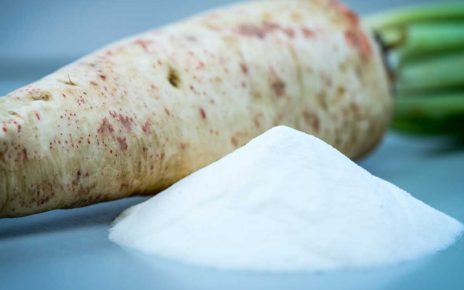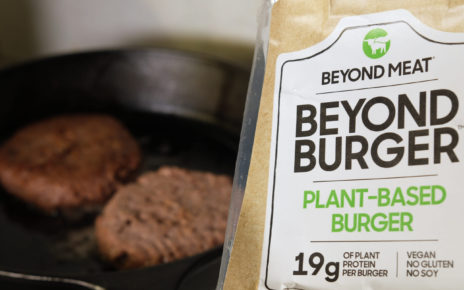In a human clinical trial, a novel combination of two Lactobacillus paracasei probiotic bacterial strains under the brand name AminoAlta, increase the absorption of key amino acids derived from plant proteins.
While most plant proteins are considered to be either “incomplete,” or functionally inferior to the more efficiently-absorbed animal proteins, the disparity between the two types can be mitigated, according to Dr. Walter Fiore, a co-author of the study.
“Fermenting proteins in the gut release bioactive molecules that have a wide range of effects on human health,” Fiore said. “Animal proteins are known to be more efficiently absorbed than plant proteins, and most plant proteins are considered incomplete and functionally inferior. For example, the popular pea protein is naturally low in methionine and cysteine, and contains lower amounts of the branched-chain amino acids leucine, isoleucine and valine, which play a critical role in muscle health, structure, and function.”
In the study, 15 physically active men consumed 20 grams of pea protein with either AminoAlta, a combination of 5 billion CFU LP-DG, and 5 billoin CFU of L. paracasei LPC-S01, or a placebo for two weeks separated by a 4-week washout period. Blood samples were taken at baseline, and at 30, 60, 120, and 180 minutes post-consumption for amino acid content analysis.
The two strains in AminoAlta have been previously studied for other uses, such as digestive and immune support, and for women’s health applications.
“Those men who consumed the pea plant protein along with the probiotic combination exhibited significantly increased methionine, histidine, valine, leucine, isoleucine, tyrosine, as well as total BCAA and total EAA (essential amino acids) maximum concentrations (Cmax) and area under concentration (AUC) without significantly changing the time to reach maximum concentrations,” Dr. Ralf Jäger of Increnovo, scientific lead on the study, said.
For a burgeoning plant protein market segment, projected by The Insight Partners to increase at a CAGR of 6.2% through 2027, AminoAlta could provide an avenue to draw in more consumer interest in going plant-based as a booster of sorts which allows pea proteins to offer consumers a superior nutritional profile.
AminoAlta increased the absorption of BCAA by 22.8%, EAA by 16.0%, leucine by 23.3%, isoleucine by 26%, valine by 21.5% and tyrosine by 16% on average among those who supplemented with the probiotics for two weeks.
“This study is highly relevant as millions of healthy-minded people- from vegans to flexitarians- embrace plant proteins over animal proteins, not only for workout gains and training, but to maintain lasting health,” Gregory Bonfilio, president and CEO of SOFAR Americas, said. “The rapid and unparalleled success of so-called plant-based meats, and the steady shift from whey to pea protein in the sports and weight management sectors, indicates that our research in this area over the last few years is both promising and pioneering.”
“The particularly positive results from this new study are informing the design and endpoints of our next two human clinical trials,” Bonfilio continued. “For the industry, this rather unknown and unsung activity of probiotics should create an entirely new potential for plant based proteins, as well as paving the way for efficacious and meaningful probiotic strain applications.”
Source: Nutraceuticals World










